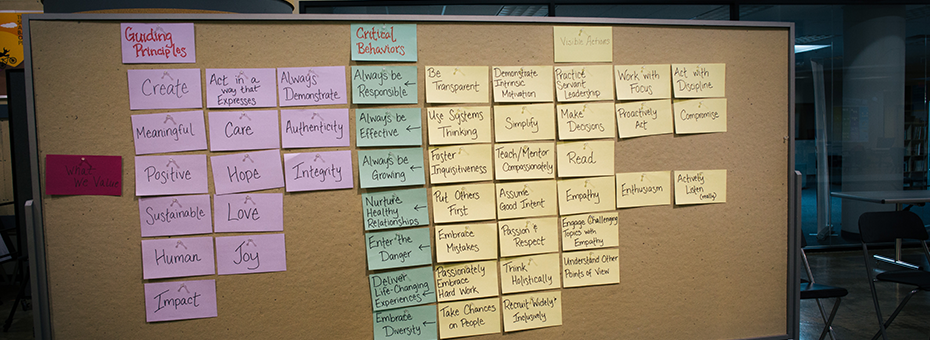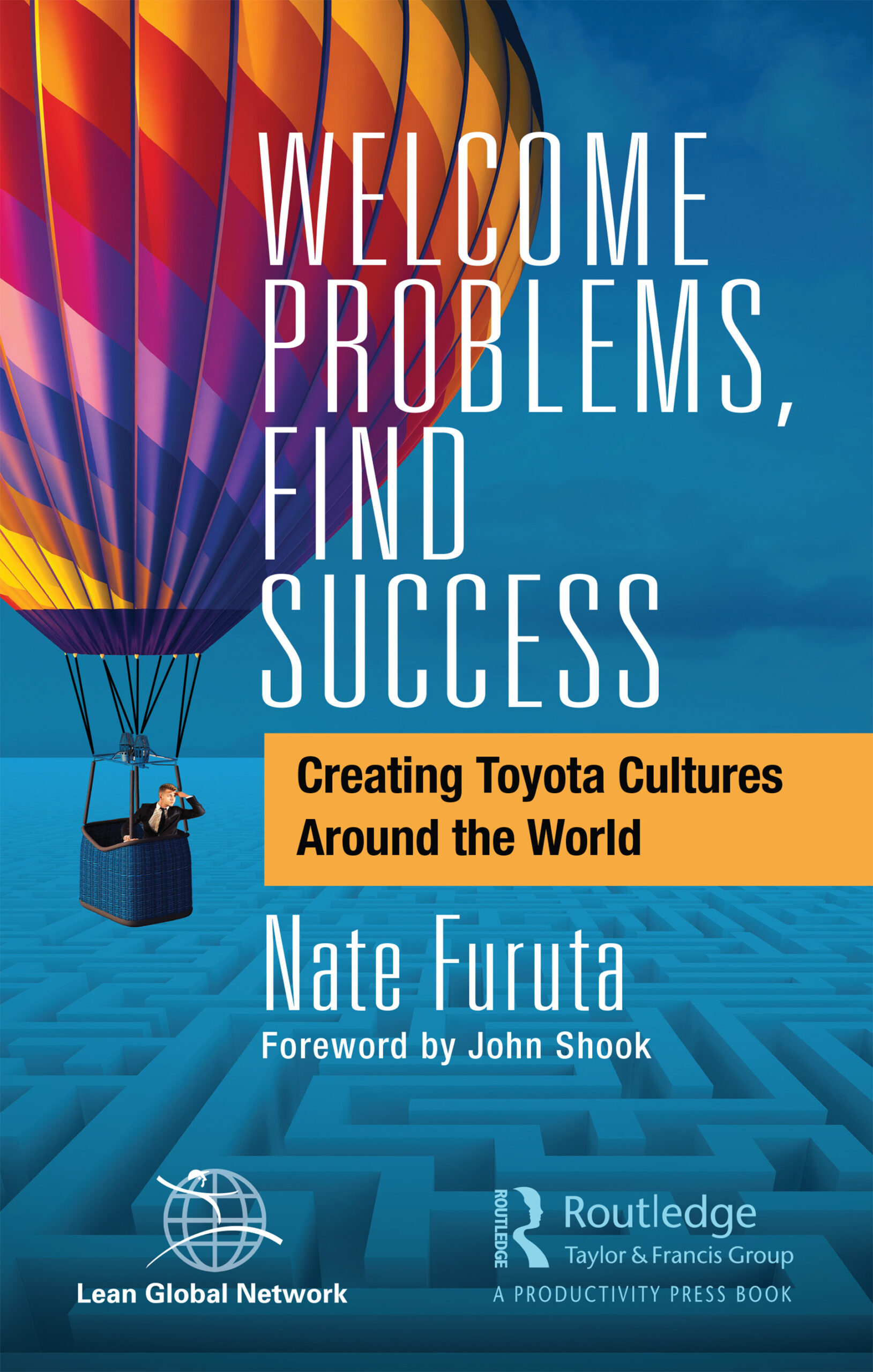At Menlo Innovations, we strive to build a culture of leadership — an environment and ecosystem where many people, not just the CEO, feel accountable for the organization’s performance and help direct it to new heights.
In our world, a culture of leadership manifests in a nonhierarchical office. However, we did not set out to build a boss-less office, although that is what we have become. So, we never read about Holacracy, Teal, or other popular terms used for flat organizations.
We also did not set out to become a lean company. Instead, the Lean Community discovered and told us we embodied lean thinking. Same with Deming, Six Sigma, Agile, Scrum, Design Thinking, Influencer, Getting Things Done, Outward Mindset, Toyota Kata, and the like.
When I say this, people look at me and remark, “But Rich, you said you created an intentional culture and yet it sounds like you just stumbled into most of what you have now.”
We had a purpose from the start — and that dictated everything we built.
Both things are true. The intention and purpose of our culture were as clear at the beginning as it is now — to “end human suffering as it relates to technology” by bringing joy back to the invention of software. We had a purpose from the start — and that dictated everything we built.
Everything that we chose to do — paper-based planning, weekly cycles, pair programming, open office plan, daily standup meetings, teaching our Menlo Way to others, tours, writing books, Open Book Management, visioning, and yes, avoiding a dog-eat-dog, get-to-the-top-of-the-heap-and-defend-your-position management system —were all sought in the pursuit of an intentionally joyful culture.

We chose many of these practices for the right reasons, and after we put them into practice, we discovered that there was good theory and principles for what we did. But we made these choices in the moment because we were simply solving problems. I recently discovered a passage from Jim Womack’s Foreword to The Birth of Lean (tracing the evolution of the Toyota Production System) that feels similar in spirit:
“At a time when all of us are struggling to implement lean production and lean management, often with complex programs on an organization-wide basis, it is helpful to learn that the creators of lean had no grand plan and no company-wide program to install it. Instead, they were an army of line-manager experimenters trying to solve pressing business problems, in particular a lack of financial resources, to grow rapidly without accumulating large inventories.”
Most of the things we do now that people admire evolved from some very simple experiments.
Most of the things we do now that people admire evolved from some very simple experiments. Those that succeeded became more intricate over time. We will change and be different years from now for the same reason.
I will say this clearly and briefly: Do not pursue processes, plans, or practices without purpose.
You can’t embark on a journey to establish a culture of leadership for its own sake. Your organization must serve a higher purpose. We figured out that at Menlo we wanted to produce joy in the world for others. The things we do are in pursuit of that joy. Bringing joy to others gives us pride in what we do. That brings us joy.
A purpose-driven culture is hard to build. It takes time. You will suffer setbacks, and you will be mocked — until everyone says what you do is just obvious. Other people will expect immediate results as you rebuild the airplane you’re flying in. Remember that you’re doing it for the right reasons. And it will result in joy.
… there is really only one source of joy: to deliver the work to the world, delight the people who use it, and work without fanfare …
For me, this journey was a combination of turning toward something while also turning away from things. The Center for Positive Organizations says that just as a plant turns to the sunlight, organizations and their people will bend towards positivity. I was bending away from fear, bureaucracy, meeting overload, unhappy customers, and chaos. I knew these things didn’t work. I had tried many of them for over a decade. So, instead, I bent toward the importance of team energy and purpose in the organization. It took me a while to realize that there is really only one source of joy: to deliver the work to the world, delight the people who use it, and work without fanfare; no matter how you get to that, you get joy.
Most of us are willing to work very hard for something important. Ask anyone who has stood alongside a loved one through a chronic illness. Some ask, “How did you do it?” You might answer, “I don’t know how I did it, but I do know why.”
That’s why creating an intentional culture is both established and emergent.

This article was adapted from Chief Joy Officer: How Great Leaders Elevate Human Energy and Eliminate Fear by Richard Sheridan; Foreword by Tom Peters, in agreement with Portfolio, an imprint of Penguin Publishing Group, a division of Penguin Random House LLC. Copyright © Richard Sheridan, 2018.
Editor’s Note: This Lean Post is an updated version of an article published on April 17, 2019, one of the most popular posts about this vital lean practice.





